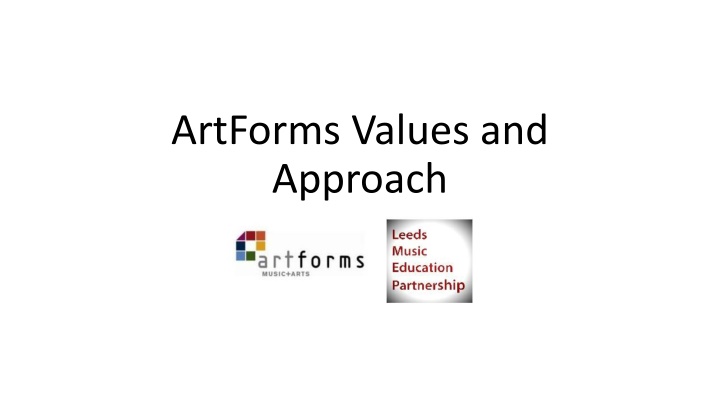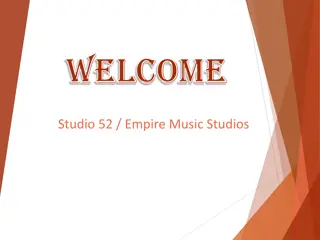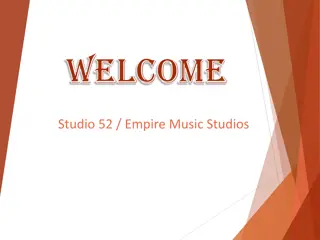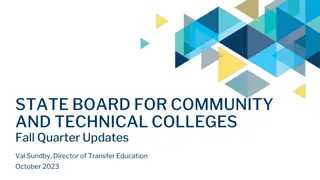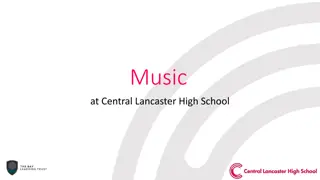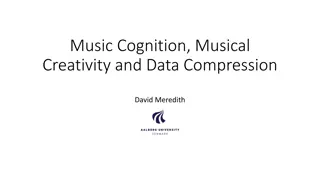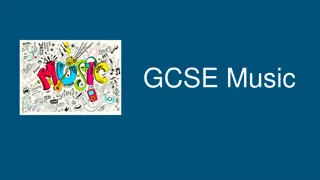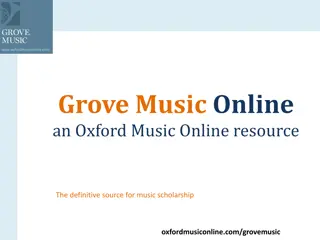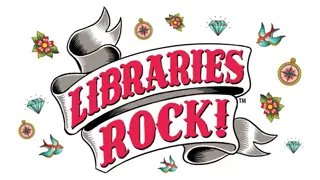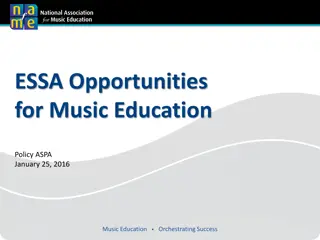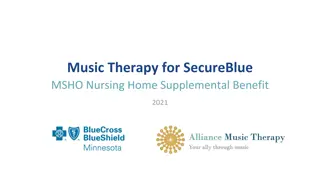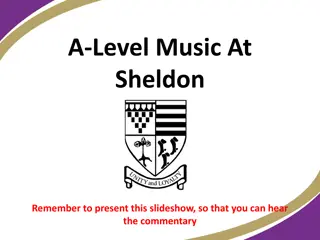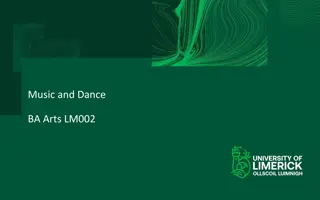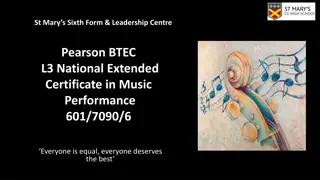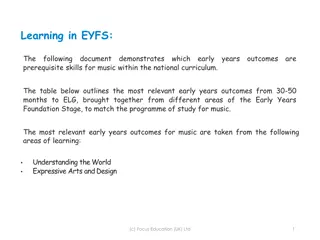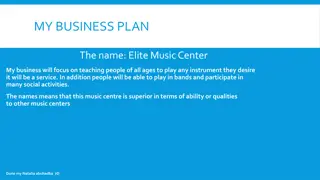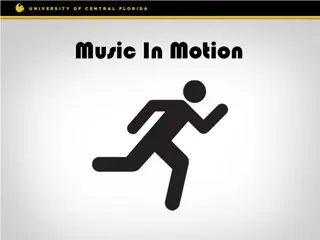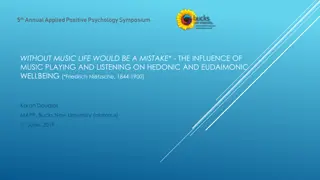Strategic Initiatives in Music Education and Partnership Priorities
Explore a comprehensive overview of initiatives and priorities in music education, focusing on whole-class instrumental tuition, ensemble teaching programs, professional development for school staff, and key priorities set by the Leeds Music Education Partnership. Discover how these initiatives aim to enhance music learning opportunities for children and improve access to musical experiences.
Download Presentation

Please find below an Image/Link to download the presentation.
The content on the website is provided AS IS for your information and personal use only. It may not be sold, licensed, or shared on other websites without obtaining consent from the author.If you encounter any issues during the download, it is possible that the publisher has removed the file from their server.
You are allowed to download the files provided on this website for personal or commercial use, subject to the condition that they are used lawfully. All files are the property of their respective owners.
The content on the website is provided AS IS for your information and personal use only. It may not be sold, licensed, or shared on other websites without obtaining consent from the author.
E N D
Presentation Transcript
ArtForms Values and Approach
School Improvement Priorities Attendance Attainment Achievement
Task 1 Find someone in the room who has, or is, doing work with: 1. Whole class instrumental tuition 2. City of Leeds Youth Music 3. 3As 4. SEND For each, find out something that you didn t already know.
National Plan for Music Core Roles 1. Ensure that every child aged five to 18 has the opportunity to learn a musical instrument (other than voice) through whole-class ensemble teaching programmes for ideally a year (but for a minimum of a term) of weekly tuition on the same instrument. 2. Provide opportunities to play in ensembles and to perform from an early stage. 3. Ensure that clear progression routes are available and affordable to all young people. 4. Develop a singing strategy to ensure that every pupil is singing regularly and that choirs and other vocal ensembles are available in the area.
National Plan for Music Extension Roles 1. Offer Continuous Professional Development (CPD) to school staff, particularly in supporting schools to deliver music in the curriculum. 2. Provide an instrument loan service, with discounts or free provision for those on low incomes. 3. Provide access to large scale and/or high quality music experiences for pupils, working with professional musicians and/or venues. This may include undertaking work to publicise the opportunities available to schools, parents/carers and students.
Leeds Music Education Partnership Key Priorities 2018-20 Increase the take-up of schools accessing WCET from 48% (below the national average of 49.6%) to over 50% (above the national average). Aim to raise the number of pupils attending ensembles supported or delivered by partners from 1.2% to the national average of 4.5%. The number of pupils accessing small group lessons through partners is comfortably above the national average of 3.1%. We will maintain this number, and seek to increase it to 5%. We support 80.7% of schools through our singing strategy (above the national average of 70.9%). We will retain this figure and seek to increase it where possible.
ArtForms Breadth WCET Small Group work NC teaching SEND and Music Therapy Projects, workshops and performances Music Centres CLYM Anything else?
Expectations and Benefits Five Things
Task 2 Share examples of how each of you demonstrates your response to the Five Expectations and Benefits.
ArtForms Big 5 for 2019-20
1. Awards Whole class awards Small group awards
2. Planning Planning template Lesson notes
3. Progression From whole class to small group Into ensembles, music centres, CLYM etc.
4. Events LSMA Meetings
5. Communication Read and answer emails Read the bulletin Communication with schools prompt, effective and polite
Task 3 What would you like ArtForms Management to do to support you in your work? On a post-it, please
Task 4 What changes will you make in your professional practice this year? Answers on a postcard, please
